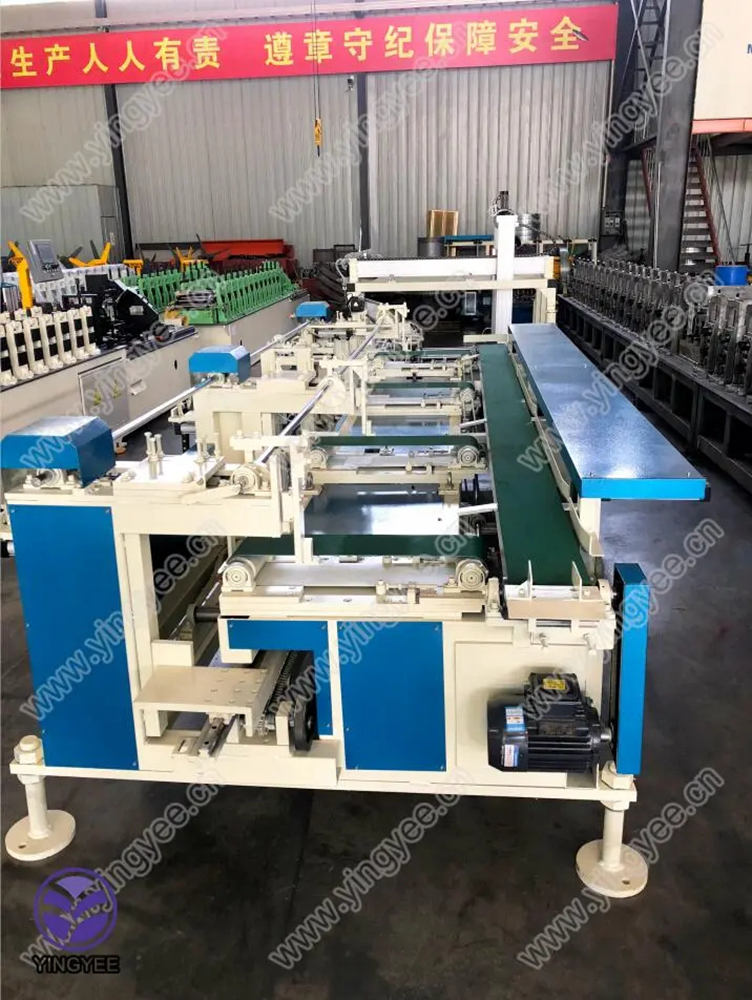
The Roof Tile Roll Forming Machine An Essential Tool for Modern Construction
In the ever-evolving landscape of construction technology, efficiency and precision play pivotal roles in determining the success of any building project. One of the standout machines that have revolutionized the manufacturing of roofing materials is the roof tile roll forming machine. This innovative equipment not only enhances productivity but also ensures the quality and durability of roof tiles, meeting the high standards demanded by modern construction.
Understanding Roof Tile Roll Forming Machines
A roof tile roll forming machine is a specialized piece of equipment designed to transform metal sheets into beautifully shaped roof tiles through a continuous forming process. The machine operates by feeding a metal coil into a series of rollers that gradually shape it into the desired tile profile. This automated process minimizes human intervention, thereby reducing the likelihood of error and ensuring consistency across batches.
The roof tile formed can vary in designs—from traditional clay-like appearances to sleek modern styles—catering to diverse architectural demands. Materials often used include steel, aluminum, and metal alloys, which can be coated with protective finishes to enhance longevity and aesthetic appeal.
Key Advantages of Roof Tile Roll Forming Machines
1. Efficiency One of the primary advantages of using a roll forming machine is its efficiency. The process is continuous, allowing for high-volume production. This means that manufacturers can produce large quantities of roof tiles in shorter periods, significantly reducing lead times for construction projects.
2. Cost-Effectiveness While the initial investment in a roof tile roll forming machine may be substantial, the long-term savings it offers are considerable. The reduction in labor costs, coupled with the machine's ability to minimize material wastage, leads to overall cost savings.

3. Customization Modern roll forming machines can be designed for a variety of tile profiles, accommodating personalized customer requirements. This flexibility allows construction companies to cater to specific architectural styles, enhancing the beauty of their projects.
4. Quality and Durability The precision engineering involved in roll forming ensures that the tiles produced have consistent dimensions and high-quality finishes. Metal tiles are also resistant to various environmental factors such as corrosion, extreme weather, and UV damage, providing long-lasting solutions for roofing needs.
5. Sustainability With a growing emphasis on sustainable construction practices, the materials used in metal tiles can often be recycled, making them an appealing choice for environmentally conscious builders. Additionally, metal roofs typically have a longer lifespan compared to traditional materials, further contributing to sustainability efforts in the construction sector.
The Future of Roofing Technology
As the world increasingly shifts towards automation and advanced manufacturing technologies, the roof tile roll forming machine stands at the forefront of this trend. With continuous improvements in technology, including the integration of IoT (Internet of Things) for better monitoring and control, we can expect even greater efficiencies and innovations.
Furthermore, as the demand for energy-efficient homes rises, the roofing industry will likely see an upsurge in the use of insulated and reflective metal roofing products, further driving the need for specialized roll forming machines that can accommodate such advancements.
Conclusion
The roof tile roll forming machine is more than just a piece of equipment; it is a pivotal innovation that is shaping the future of the construction industry. By improving efficiency, quality, and sustainability, it empowers contractors and builders to meet the diverse needs of modern architecture. As the construction landscape continues to advance, investing in such capable machines will be essential for those looking to stay competitive and deliver high-quality results in their projects.